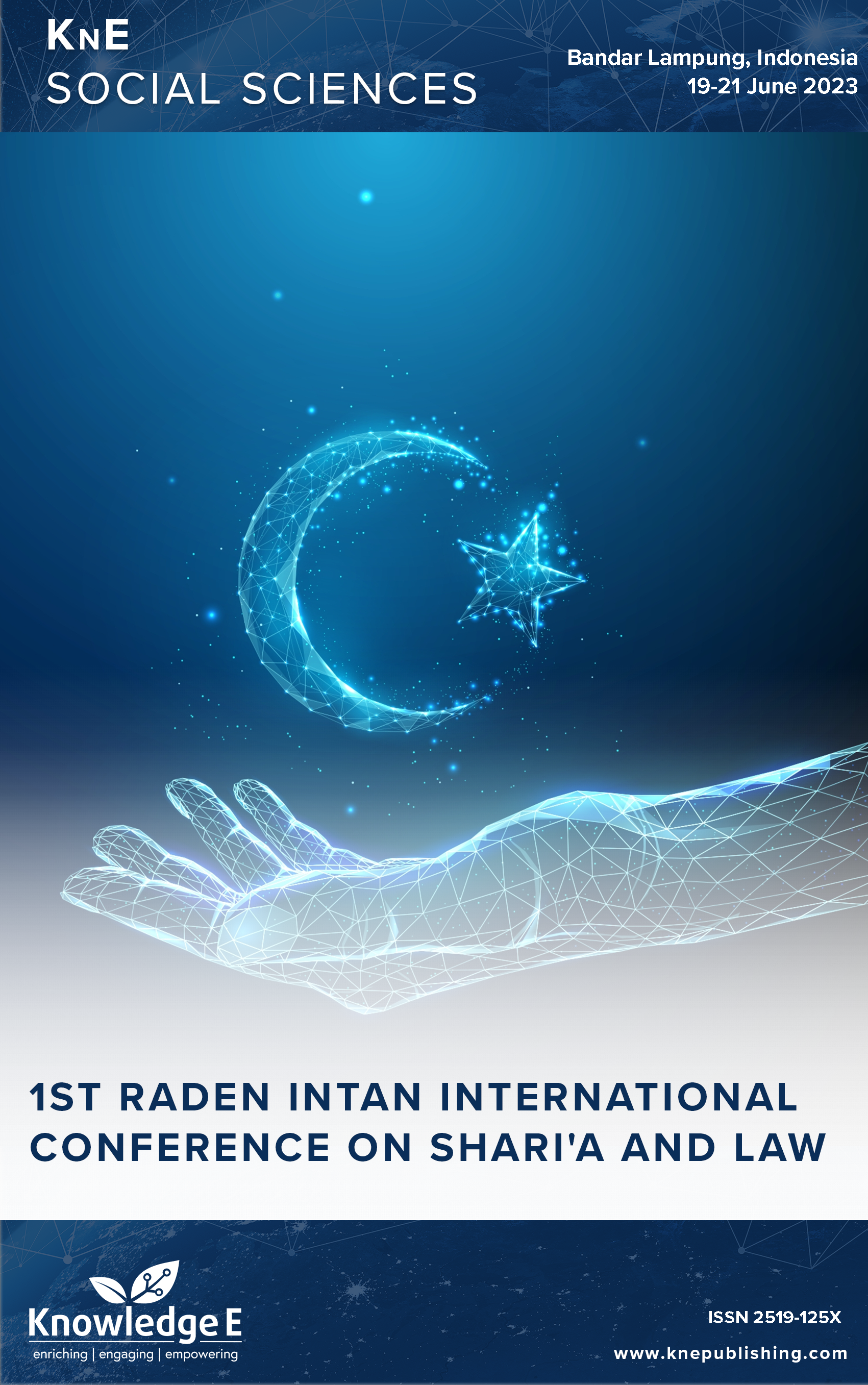Review of Sharia Economic Law on the Determination of Balance Conversion Wages Between Applications
DOI:
https://doi.org/10.18502/kss.v9i2.14967Abstract
Online transactions can be eased using smartphone applications such as m-banking, go pay, ovo, funds, and other financial transaction applications, many people also make balance exchange transactions between applications. This is used by balance exchange service providers between applications. The conversion service will get a fee or wage after making a transaction. Wages should fulfil an element of fairness and honesty that applies in general. As the conversion service in the Tanam Shopee Facebook group did, the balance conversion service sets a fee without a contract at the start and immediately deducts it from the converted balance. The formulation of the problems in this study are as follows: 1). What is the system for determining balance conversion services between applications on the Tanam Shopee Facebook Group? 2). What is the review of Sharia economic law regarding the provision of balance conversion services between applications on the Planting Shopee Facebook Group? This research is a type of field research, namely by explaining and describing circumstances and phenomena that are clearer about the situation that occurs, and the nature of this research is descriptive analysis. This research approaches interviewing and observing the practice of converting services conducted on the Tanam Shopee Facebook group. Based on the research conducted, there are two systems for determining service fees for converting balances between applications on the Tanam Shopee Facebook group between converting service providers and converting service users. First, the conversion service informs about the transaction costs and then an agreement contract. Second, the conversion service does not mention transaction fees and immediately deducts the converted balance without any prior agreement. This is a review of Sharia Economic Law regarding the service system for converting balances on the Facebook Tanam Shopee group. The first system in practice is based on the terms of ijarah, which fulfill the legal requirements and pillars of ijarah. The transaction fees are collected, and the consent granted is done in writing. Payment is made at the end of the transaction as per the agreement. Once all these terms and pillars of ijarah are fulfilled, the transaction is declared valid. Meanwhile, in the second conversion service system, wage practices in this contract are declared valid or invalid because one of the pillars and conditions of ijarah is not fulfilled, namely, the absence of sight or consent, and qabul in the transaction, wages in a contract, the quantity or quality of wages must be clear, whether in the form of nominal figures, percentages that are agreed upon and known by the parties conducting the contract. In this case, there is one party, namely the service user does not know how much the wage rate is charged. So that in practice the wages of this contract are declared valid or invalid.
Keywords: online transaction application, balance conversion, Islamic economic law
References
Ghazaly AR. Fiqh Muamalah. Jakarta: Prenadamedia Group; 2010.
Karim H. Fiqih Muamalah. 1st ed. Jakarta: Grafindo Persada; 2002. 29 p.
Maulana MI, Dede Kurnia A, Nurbaeti A. Studi Kajian Bisnis Tambang Uang Digital (Cryptomining) Dalam Konteks Ijarah. EKSISBANK Ekon Syariah dan Bisnis Perbank. 2021;5(1):35–56. DOI: https://doi.org/10.37726/ee.v5i1.158
Mustofa I. FIqh Muamalah Kontemporer. Jakarta: PT Raja Gfrafindo Pesada; 2016.
Hendriyadi H, A HS, Ja’far AK. ANALISIS HUKUM ISLAM TERHADAP PRAKTIK JUAL BELI AKUN OJEK ONLINE. ASAS. 2021 Jul;13(1):168–88. DOI: https://doi.org/10.24042/asas.v13i1.9355
Fitriyah F, Ma’arif MM. Analisis Jasa Penukaran Uang Rusak Keliling Perspektif Hukum Ekonomi Islam (Damaged Money Exchange Services on the Perspective of Islamic Law). Al-Hikmah. 2019;7(2):163–5.
Astuti F. “PenggunaJasa Convert Saldo”. Wawancara. 05 Desember. 2021.
Koenjayaningrat. Metode Pendidikan Masyarakat. Jakarta: Bumi Aksara; 1986.
Kaelan. Metode Kualitis Bidang Filsafat. Yogyakarta: Paradigma; 2005.
Susiadi. Metodologi Penelitian. Lampung: Pusat Penelitian dan Penerbitan LP2M Istitut Agama Islam Negeri Raden Intan Lampung; 2015.
Sugiono. Metode Penelitian(Pendekatan Kuantitatif, Kualitatif dan R&D). Bandung: Alfabeta; 2011.
Nazir M. Metode Penelitian. Jakarta: Ghalia Indonesia; 2009.
Ajib G. BUNGA PINJAMAN DALAM PERSPEKTIF KEADILAN (Studi Kasus Bunga Pinjaman di KPRI Nusantara IAIN Walisongo). Econ J Ekon Islam. 2013;4(1):1–32. DOI: https://doi.org/10.21580/economica.2013.4.1.688
Bukido R, Hasan F. Penerapan Akad Ijarah Pada Produk Rahn Di Cabang Pegadaian Syariah Istiqlal Manado. J Ilm Al-Syir’ah. 2016;14(1):1–19. DOI: https://doi.org/10.30984/as.v14i1.311
Tumangkeng GA. Penilaian Konsep Qard Dan Ijarah Dalam Dana Talangan Haji Di Indonesia: Suatu Kerangka Konseptual. J EMBA. 2013;1(4):78–85.
Ambariyani A, Damayanti W. Praktik Ijarah Jasa Pengairan Sawah dalam Pandangan Hukum Ekonomi Syariah (Studi di Kota Metro). J Mahkamah. 2017;2(1):103. DOI: https://doi.org/10.25217/jm.v2i1.125
Sugalayudana RN, Bayuni EM, Yunus M. Tinjauan Akad Ijarah dan Peraturan Daerah No. 3 Tahun 2008 tentang Penyelenggara Perparkiran terhadap Pengambilan Sewa Parkir Liar. Pros Huk Ekon Syariah. 2020;(3):5. DOI: https://doi.org/10.29313/syariah.v0i0.19204
Muhammad Syarif Hidayatullah. Analisis Aspek Prosedural Dan Substansial Dalam Pembiayaan Ijarah Muntahiyah Bit Tamlik Di Lembaga Keuangan Syariah. Tadayun J Huk Ekon Syariah. 2021;2(2):75–100. DOI: https://doi.org/10.24239/tadayun.v2i2.18

